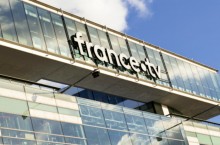CIO en VO : l'Icann s'apprête à fixer les règles des nouveaux gTLD
Les DSI vont devoir bientôt surveiller davantage de TLD au niveau de l'éventuelle usurpation de marques... et, s'ils travaillent dans de très grands groupes ou de grandes collectivités locales (comme Paris ou la Bretagne) se préoccuper d'ouvrir ou de gérer un gTLD. L'Icann s'apprête à fixer les règles de ces nouveaux gTLD (du .sexe au .paris en passant par le breton .bzh) et vient déjà de publier un important document préparatoire issu des consultations menées récemment.
PublicitéThe Internet Corporation for Assigned Names and Numbers (ICANN) has delayed its plans to sell new generic top-level domains in an effort to respond to public comments about the controversial proposal. ICANN on Wednesday released a 154-page document detailing and analyzing the hundreds of comments it has received about its generic top-level domain (gTLD) plan. In response to several concerns brought up by the public and companies in the Internet industry, ICANN's projected timeline for taking applications for new gTLDs has slipped from September to December, said Paul Levins, ICANN's executive officer and vice president for corporate affairs. "This documents the thinking on what is going to be a historic and innovative change," Levins said. "We're listening and we're acting on people's advice. People expect us to be thoughtful and responsive to their concerns, and this is us doing just that." Several people have criticized ICANN's plan to sell new gTLDs, an attempt to open up a TLD process that has been cumbersome in the past. Several governments, including the U.S. government, have been asking for a more streamlined TLD-granting process for nearly a decade, ICANN officials have said. ICANN is the organization that oversees the Web's top-level domain naming system. Right now, there are only 21 generic or sponsored TLDs, including .com, .org, .biz and .info, and those TLDs all use English characters. The ICANN proposal would open up generic TLDs to non-English characters such as Chinese, and it would also allow groups to pay for TLDs such as .cars, .blues, or .cola. But several corporations have raised concerns that they'd have to register dozens of additional URLs in each new gTLD to protect their brands if the ICANN proposal goes through. In addition, companies may have to buy their own gTLDs, such as .ibm or .dell, and ICANN has proposed an application cost of US$185,000, not including yearly upkeep fees. In the new document, called the gTLD Draft Applicant Guidebook, ICANN says it is looking at several ways to protect trademark holders. "ICANN recognizes the trademark rights holders' concerns with protecting their brands and controlling costs associated with defensive registrations," the document says. "ICANN believes in protecting brand owners' trademarks and preventing abusive registrations. To that end, ICANN is continuing to evaluate and update its brand protection strategy and will be setting out a process to receive further inputs regarding appropriate mechanisms to enhance those protections." For example, ICANN may develop "white lists" of domain names that cannot be registered, the document says. In addition, ICANN's board has asked two of its committees to study the effects on Domain Name System security and stability that the gTLD proposal will have, and ICANN will conduct a study on the demand for new gTLDs, addressing two other major concerns, the document says. The document also addresses several other concerns raised. "There are literally thousands of voices shaping this next layer of innovation on the Internet, and we're documenting it for all to see," Levins said. "This is no small change -- of course, we want to work with people to get a level of comfort. There's more work to do, that's the point of putting documents out to public comment." ICANN deserves credit for publishing the detailed analysis of comments on the gTLD plan, said Michael Palage, an adjunct fellow at Washington, D.C., think tank the Progress and Freedom Foundation and a former ICANN board member. ICANN's decision to commission an economic study on gTLDs was "badly needed," he said. However, ICANN didn't provide a lot of detail on how it will deal with trademark protection issues, he added. "ICANN simply kicked the can down the road on the biggest concern: how to minimize abusive domain name registrations and reduce their impact on consumers," Palage said in an e-mail. "ICANN seems only to have made a vague promise to engage in additional outreach and consultation." By Grant Gross - Copyright © 2008 IDG News Service. All rights reserved. IDG News Service is a trademark of International Data Group, Inc.
Article rédigé par
IDG News Service










Commentaire
INFORMATION
Vous devez être connecté à votre compte CIO pour poster un commentaire.
Cliquez ici pour vous connecter
Pas encore inscrit ? s'inscrire